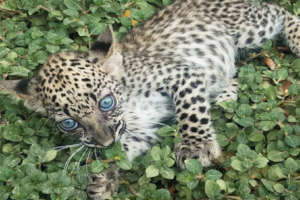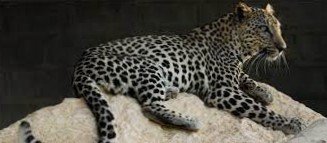By Mohammed Abuhyder | Project Leader
A successful conservation strategy must promote the awareness of the importance of leopard conservation, employing the media and perhaps other sources for basic education programs. The support and involvement of people living close to leopard habitats are vital in such efforts. This is true not only because they might affect the conservation of the leopard in one way or another, but also because they depend on their livestock which could be killed occasionally by leopards. Although it is not always practical, compensation for lost livestock from leopard predation should be considered. Revenue from sources such as hunting rights and ecotourism, services such as roads and school employment in protected areas would encourage local residents to participate in leopard conservation. Furthermore, well-managed protected areas will ensure the continued survival of the species until other factors enhancing its survival become effective. Public awareness, fruitful consideration of the needs of local people and ecological studies may take years to be useful. Sanid Organization Nature Conservation Sector (SONCS) continues to work towards ensuring a sustainably managed wild population of Arabian Leopards living in harmony with local communities in Yemen. Our mission is based on the critically endangered status of Arabian Leopards, the weight of the threats against them, and the fact that as apex predators they can only exist in a pristine environment. Conserving leopards has a “knock-on” benefit for their prey, the vegetation base that sustains it, right on down to the soil, water, and micro-organisms that keep the whole system from collapsing. Our objectives are to ensure an expanding population of wild Arabian Leopards in Yemen by 1) Increasing public awareness, understanding, sympathy, commitment, and involvement in the conservation of Arabian Leopards, 2) Improving the breeding success of the captive Arabian Leopards at Sana’a Zoo, 3) Lobbying for the establishment of protected areas for wild Arabian Leopards and their prey, 4) Conducting an accurate census of Arabian Leopards in Yemen, 5) Cooperating with organizations in other countries that are concerned with the conservation of Arabian Leopards for the benefit of the subspecies regionally. SONCS was established as a sector under Sanid Organization for Relief and Development which was officially registered with the Yemen Ministry for Social Affairs and Labour under license NO. (1013) in 2014. SONCS covers all territory within the borders of mainland Yemen. Although a main focus of SONCS is the Arabian Leopard (Panthera pardus nimr) we recognize that this flagship species can only exist in intact ecosystems. Arabian Leopards inhabit mountain wadi systems with permanent surface water. There must be adequate vegetation to sustain the leopards’ herbivorous prey, suitable den sites, and freedom from harassment. Through its project Protecting Arab Leopard in Endangered Yemen , a project on GlobalGiving, Sanid Organization will seek to verify the presence of the Arabian leopard and assess the status of the population. Results of the action will provide data about the Arabian Leopard population in general, and in Wada a, in particular. By self-finance, Sanid Organization tries its best to protect the Arabian leopard from extinction in Yemen through field surveys, meetings, raising community awareness. Nevertheless, protecting such endangered species needs much more support and help from individual and organizations.
Because of lacking financial support to Arabian leopards conservation projects, they are still hunted to be sold, captured, and horribly killed.
Project reports on GlobalGiving are posted directly to globalgiving.org by Project Leaders as they are completed, generally every 3-4 months. To protect the integrity of these documents, GlobalGiving does not alter them; therefore you may find some language or formatting issues.
If you donate to this project or have donated to this project, you can receive an email when this project posts a report. You can also subscribe for reports without donating.
Support this important cause by creating a personalized fundraising page.
Start a Fundraiser
